Becoming a detective is a dream for those who grow up watching detective and serial movies. The thrill of deducing never really leaves us especially after getting to know the character of Sherlock Holmes. However, somewhere along the way, we forget this dream of ours and work towards more “realistic” goals. Crime rate continue to increase that is why the need for detectives to solve them rises. This is where some police officers step up and exhibit the Sherlock Holmes in them. You will find some information about being a detective if you still want to become one.
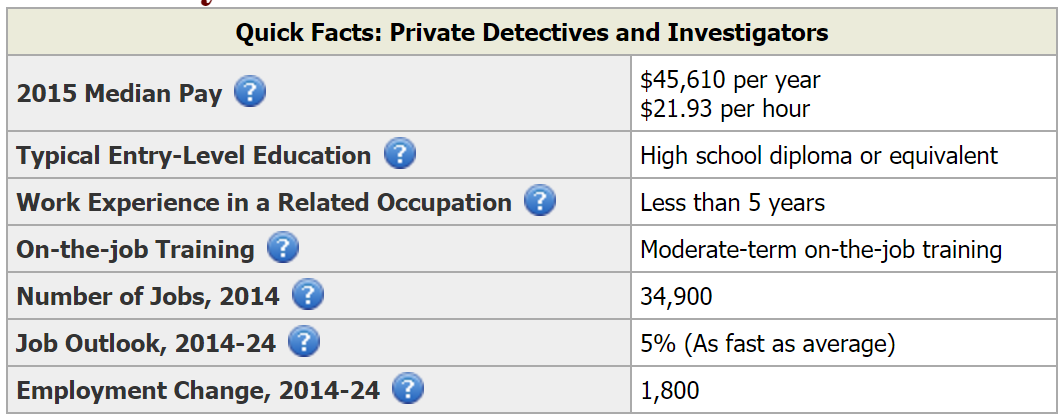

Table Of Contents
- Average Detective Salary
- Detective Career Outlook
- How To Become A Detective
- Detective Job Description
How Much Does A Detective Make
The employer is the one who will decide regarding the detective’s salary. Usually, a state employed investigator has higher earnings compared to a private one. This is because a private detective has intermittent work while the state employed has a steady work. A state employed detective earns a national average of $76,000. The average salary for a private detective is around $45,000 only. We shall discuss factors affecting a PI’s salary later. For now, let us look at the factors that affect the salary of state employed investigators.
[asd_program_button /]Population Size
Just like police officers, the income of a detective is dependent on the city’s population. The number of cases to be handled by a detective increases if the city is more populated. In this case, the salary will increase. One of the major factors in deciding the salary of an investigator is the crime rate. For example, the average salary for someone in the LA police department ranges from $44,000 to $88,000. In contrast, for someone in Miami Police department, the average salary tends to be around $86,000 to $107,000.
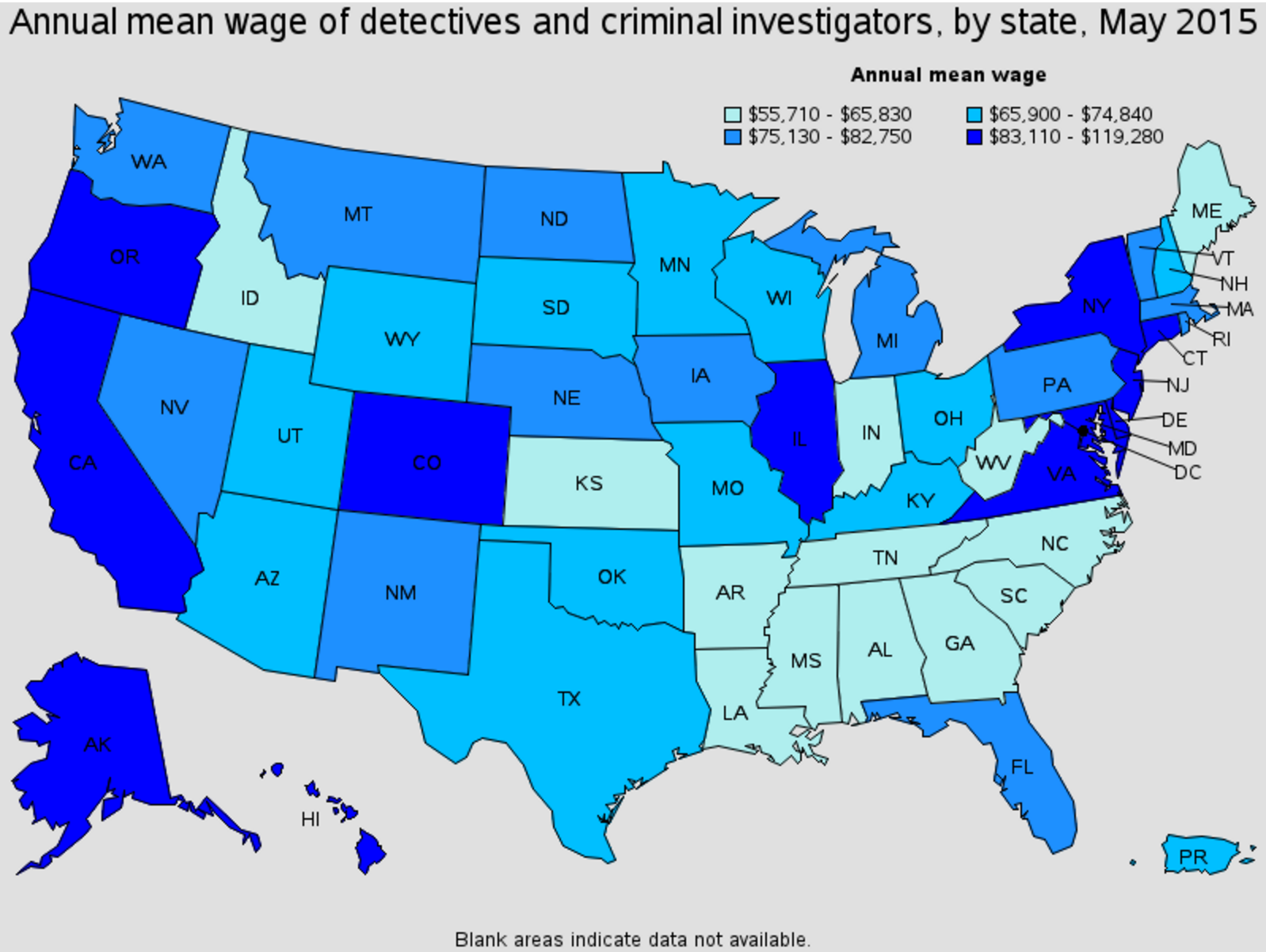
Place assigned or working
Crime rate and population of the place are closely related to the location. But there is another factor, which is the cost of living. A detective will be paid higher if the cost of living in that certain location is higher. This logic agrees with the case of private investigators too. A pay of $116,00 is usually received by employees in District of Columbia, Alaska and New Jersey.
Level of education attained
For any police job (except at the federal level), a high school degree is sufficient. States have different rules but a higher education certificate is not necessary in some states. However, officers and detectives are paid more if they have a degree after high school as there are states and departments who consider higher education important. This may be an associate’s, bachelor’s or even a master’s degree. You will be paid more depending on your degree.
Number of years in the field
You will be paid as an investigator if you will be working in the field for a long period of time. For those who are working in the field for 20 years already even if they are not promoted will get up to $15,000 increase. You can earn about $180,000 annually if you reach the post of Police Chief as a promotion.
Twisp Private Investigators
The number of cases and solving them are the bases of a private investigator’s salary. The factors that affect the salary as mentioned above include the location, amount of discretion needed, amount of danger involved, required extra equipment and other many things. Clients usually present their problem to the investigator and then it is up to them to quote a price for the job.
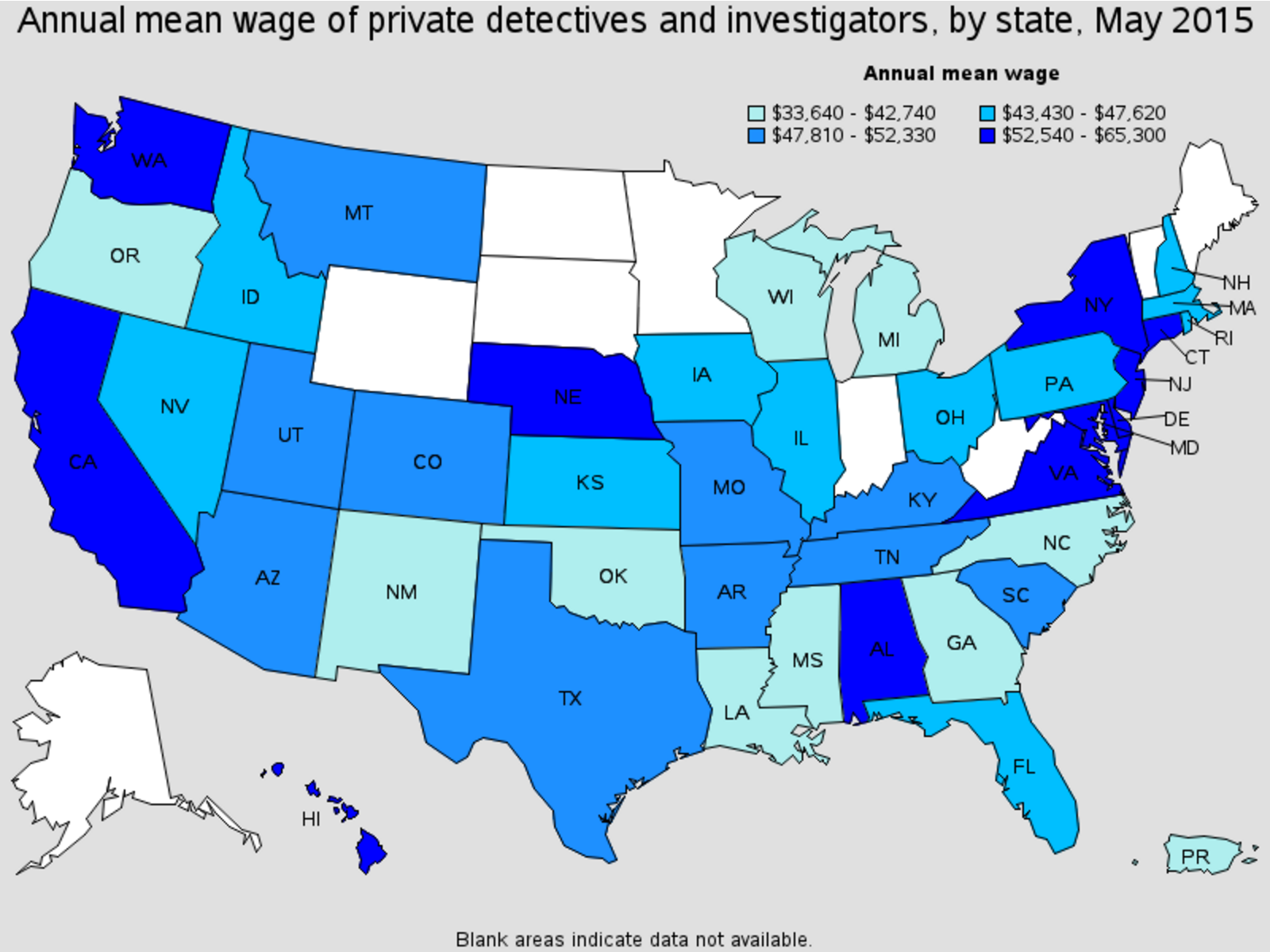
You will know here that a state-employed detective’s income is steady and through various means it can be increased. On the hand, the salary of a private investigator is quite unpredictable and can only be increased by fame (or rather being more discrete). Now that you have the financial facts, you can decide which path to choose.
Twisp Detective Career Outlook
First, let’s talk about the growth in the fields. In 2015, the recorded public detectives or criminals investigators are about 106,000. Meanwhile, private investigators who do the same job were only 30,000. Private detectives have grown for about 5% in the industry. This means that there will be about 1,500 new jobs open by 2025. This growth rate is following the average growth rate of 5% across all other sectors. This figure is only 4% for public investigators. This means there is going to be around 4,000 more jobs as a criminal investigator by 2025. This can be considered as an average rate of growth as well.
[asd_program_button /]The increasing population is the reason behind this steady increase in employment. As the population increases, more people need to be protected and more criminals need to be caught. But due to the strict implementation of laws and technology are more advanced, the crime rate is not increasing that much. Hence, there is a balance in each other, which leads to average growth in both careers.
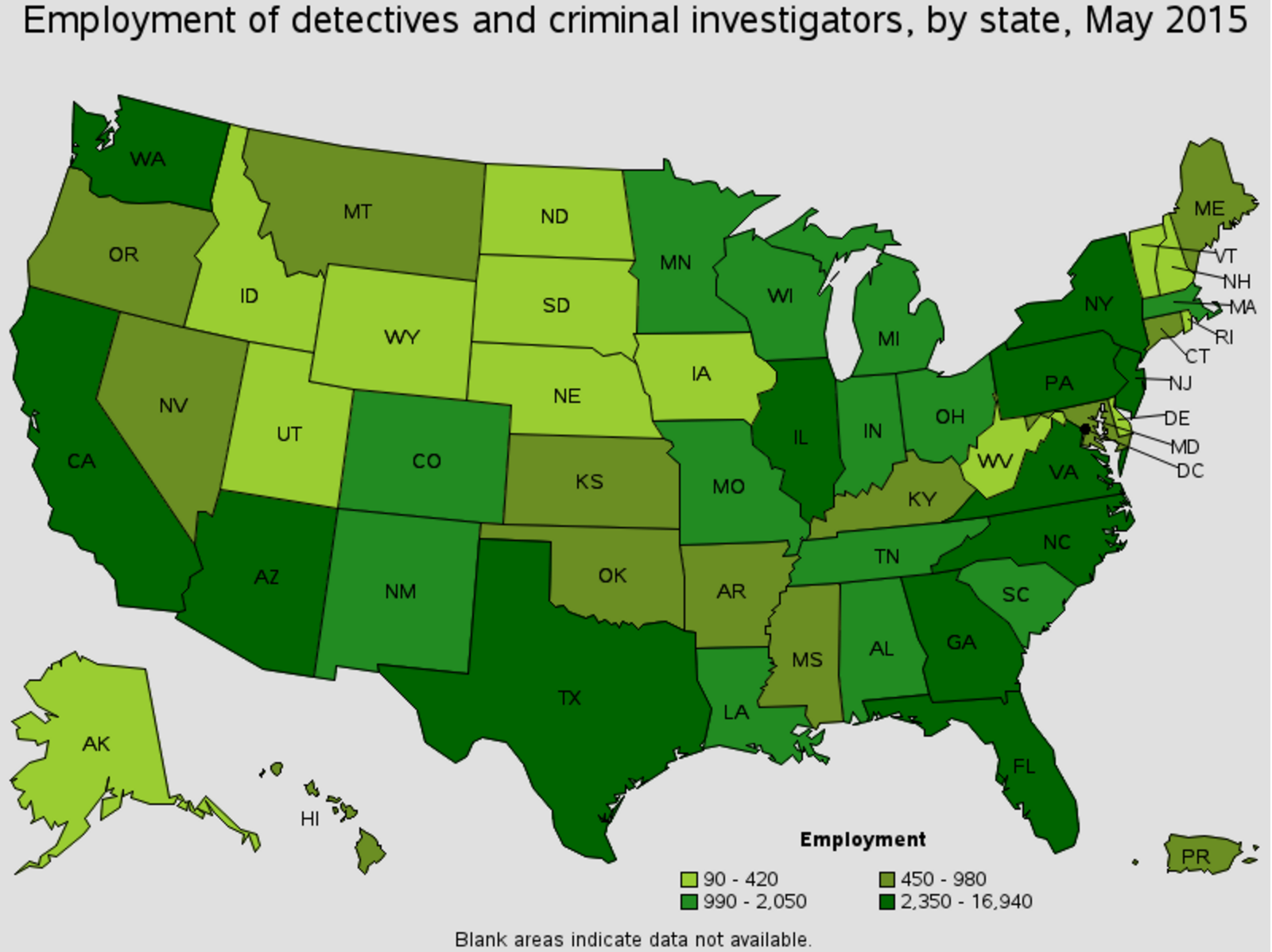
In terms of location, Texas, California and New York have the highest number of Criminal/Law Enforcement Investigators. There are more employments in Western states and Texas compared to the eastern part. Private detectives in California, Texas and Florida with the southern part are higher in number compared to the northern ones.
Let’s now find out where these two professionals are hired most by industires. As clear as day, The Local, State government and the Federal branch employ the most number of criminal investigators. Security Services, Consulting services are the ones who usually hire private detectives and the local government need them for consultation on a few cases.
Financially speaking, criminal investigators do get paid more than private ones. Criminal investigators receive $80,000 as average salary annually while Private investigators earn $52,000 only. When combining the aspects of geography and finance, the District of Columbia, Alaska, and New Jersey is paying most the Public investigators. Private detectives were paid most in Alabama, Nebraska, and New Jersey.
Private industries that employ most do not pay the highest in comparison with the different industires. In fact, Electromedical, Navigational, Power generation, Metal Product forming and other such industries paid the most for private detectives since they had the most sensitive information to protect. For public investigators, they are paid most by federal agencies, postal services, and educational institutes.
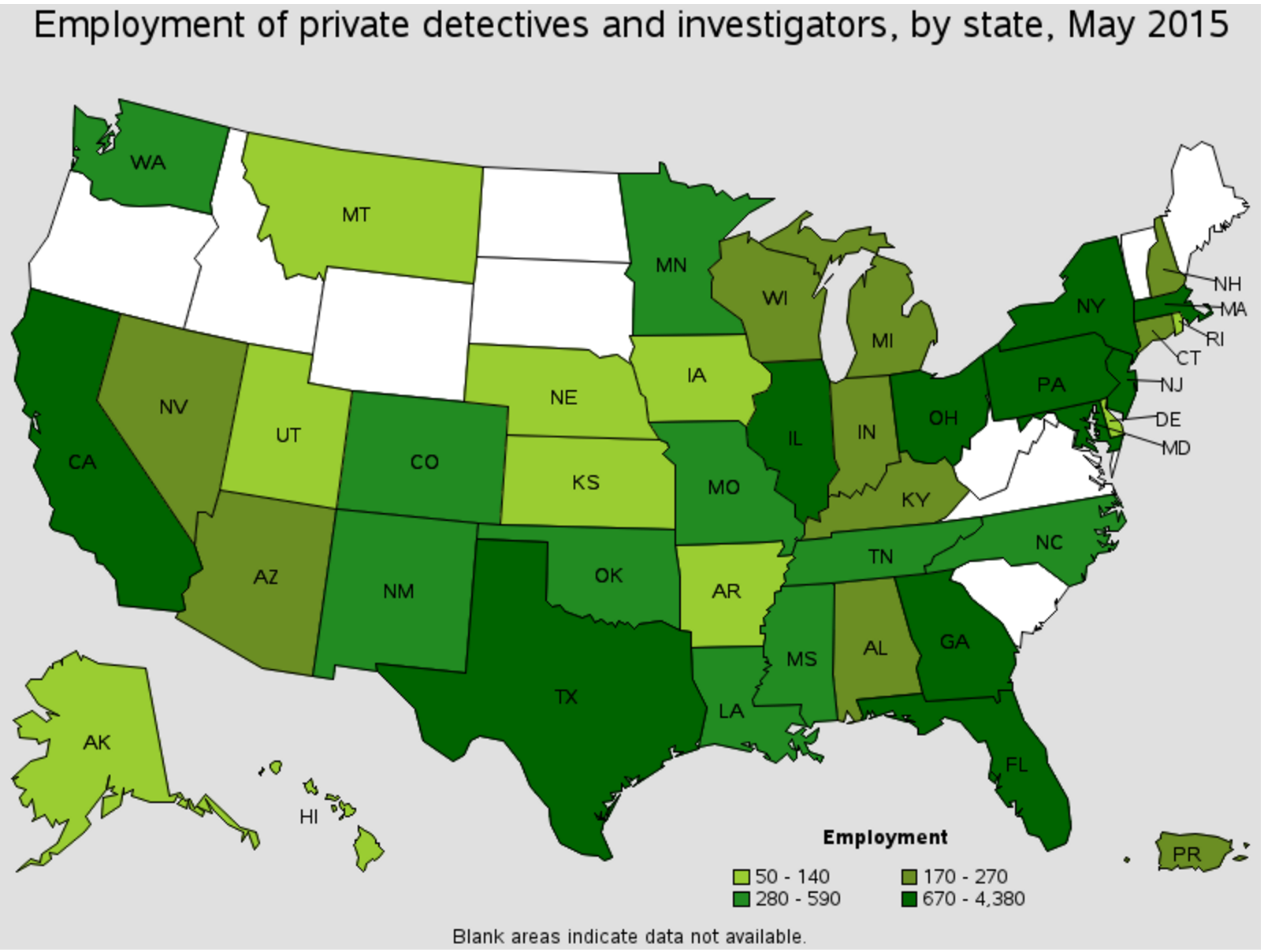
How can You Qualify as a Detective In Twisp
It is important to note that there are two kinds of detectives. General public can hire some private investigators to investigate certain things. The others are employed by the government and reach this post after being promoted from a police officer. Here we shall explore both the avenues.
[asd_program_button /]Complete High School
A detective is generally a police officer who has been promoted to that position because of his or her skills of deduction. Thus, a general way in becoming a detective is to first complete high school and get into the police academy to become a police officer. Becoming a private investigator would mean getting a high school degree.
Get Yourself a Bachelor’s Degree
In most cases, enlisting in the police force won’t require a bachelor’s degree. Some officers however want to have another source of income right after they retire from their job. However, if you aspire to be a detective or land a job on federal level, you will need a bachelor’s degree.
Many institutions require applicants to have a bachelor’s degree in law, criminal justice or psychology to become a detective. If you have an associate’s degree, you will need at least 5000 hours. On the other hand, someone with a bachelor’s degree needs only 4000 hours of training.
Gain experience
To become a professional detective (not employed by the state), you need to have some professional experience as an investigator. Fortunately, you have several options available. But in most cases, it will require you to be employed by the government. You will be regarded as a person with experience if you worked as a criminal investigator or an arson investigator. However, you can also choose to work as a licensed repossessor or office investigator.
Depending on the state you are applying in, the requirements of experience change. There are some that only require 3 years of experience, but some might need at least five.
Own a gun legally
Investigators that aren’t licensed by the state aren’t allowed to carry firearms without a permit. There are several firearms with strict requirements such as completing a full training course before the permits are issued. Hence, to get a permit for your firearm when working as an investigator, you will need to complete the full training course.
Undergo a Washington licensing test
After completing all the education and experience requirements, you are required to undergo a state licensing test. During the exam, you will need to answer questions in multiple choice, usually regarding about state laws and several other procedures. Those who are looking to be a private detective will need to take this test. After passing this test, you are officially a private investigator with a license.
Get Washington Insurance
Being a detective is dangerous, hence it is a good idea to get your insurance. Typically, we’re talking about a $10,000 medical insurance. However, it is important to also get a higher amount if you carry a firearm since you need to protect yourself from greater dangers and insure the gun itself.
Complete all these steps and then voila! Your steps towards becoming a successful detective is finally within your reach. However, don’t forget that being a detective would mean exposing yourself to danger. If that doesn’t scare you away, then you should fulfill all the requirements as soon as possible.
Twisp Detective Job Description?
Crime Scene Investigation
It will be a detective’s duty to carefully assess a crime scene and come up with the most sensible deduction. It will also include searching for clues and collecting evidences. Supposedly, they should collect anything that looks like an evidence which can be used in court hearings later. Sometimes the forensic investigation department lends them a hand in analyzing the evidence and thus helping them deduce more things about the crime. Detectives should gather as many clues and evidences as possible by analyzing cameras and gathering information from eye witnesses.
[asd_program_button /]Criminal Research
Doing research regarding previous cases is regarded as an important aspect of a detective’s job. This is so that they can have an insight regarding criminal patterns and behaviors. Often, research into the past and previous case files give them an idea or a clue as to how the current culprit might be operating. In cases of serial killers or ‘copycats’, research helps a lot. This is also applicable when it comes to knowing what tactics a drug cartel is up to. Other general research can help them narrow down a suspect better or deduce the crime scene in a more efficient way.
Reducing the list of possible suspects
The goal of a detective’s job is to bring justice to light and bring the culprit to justice. But to do this, they first need to a list of possible suspects. The list could be long, including up to a hundred people, or short – sometimes none at al. They are able to come up with such list by piecing evidences, statements from eye witnesses, results from research, and a bit of forensics altogether. This suspect pool is then narrowed down by getting alibis from some suspects and interrogating others. With a narrowed down list, they will then have the suspects admit to their crimes.
Testifying In Court
Lastly, detectives will see to it that justice is served properly. To help with the process, they are sometimes summoned to the court to testify against the suspect(s). In some cases, they will describe the evidence and how they are connected to the suspect, as well as narrating the possible crime scene. In some cases, they will even accompany the culprit to the jail.
Twisp Private Detectives
All the above duties were that of a public detective or a law enforcement detective. The job description of a detective is a bit loose. They are supposed to carry out their client’s wishes to the best of their abilities as far as reconnaissance is concerned. However, they are allowed to only bend certain laws to a minimalistic extent to help them complete their duties. Some of the reasons why private detectives are hired include doing background checks, tracking finances, and even collecting clues and evidence to be used against a certain person. They should never act in a way that they can be easily recognized as a detective in public. Moreover, arresting someone is out of their jurisdiction.
managed to get a most things right. However, the roles and responsibilities that detectives carry aren’t as easy as they seem. That is never shown properly on television or anywhere else. They are always supposed to look over their shoulder and ensure they do not miss any single clue since lives literally depend on them. If the job still has you intrigued, then find out how long it takes to become a detective now!
